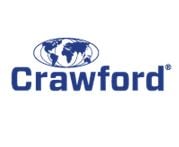
By Crawford & Company
TORONTO (October 17, 2018) – Crawford & Company (Canada), Inc. a global provider of claims and risk management solutions, continues to develop and enhance our servicing capabilities to address emerging risks. As of October 17, 2018, recreational use of cannabis will be legal in Canada. Although stipulations have been put into place concerning usage, there remains a level of risk to be managed by employers and the insurance community as a whole tied to mainstream accessibility and usage. In response, Crawford has developed a service solution to address potential risks including residential and commercial property losses, automobile losses, employee risk management, along with forensic accounting and legal services.
“The legalization of cannabis in Canada is a recent development that we will have to address from within the insurance community and outside,” said Pat Van Bakel, president and chief executive officer, Crawford & Company (Canada) Inc. “Some associated risks and potential losses are tied to property damage or theft around the growth of plants at residential properties, the management and transportation of cannabis grow-ops from a commercial standpoint, automobile incidents as a result of cannabis usage and overall employee management that addresses both medical and recreational usage. In response, we have developed a claims solution, incorporating legal services, to effectively address these potential losses.”
Click HERE to access our full service offering.
With a mission to restore and enhance business, lives and communities, Crawford is committed to developing service solutions that address the unique needs of our clients while addressing the new risks they are faced with through leveraging our vast service capabilities and the various specialties of our professionals.

Based in Atlanta, Crawford & Company (NYSE: CRD‐A and CRD‐B) is the world’s largest publicly listed independent provider of claims management and outsourcing solutions to carriers, brokers and corporates with an expansive global network serving clients in more than 70 countries. The Company’s two classes of stock are substantially identical, except with respect to voting rights and the Company’s ability to pay greater cash dividends on the non-voting Class A Common Stock (CRD-A) than on the voting Class B Common Stock (CRD-B), subject to certain limitations. In addition, with respect to mergers or similar transactions, holders of CRD-A must receive the same type and amount of consideration as holders of CRD-B, unless different consideration is approved by the holders of 75 percent of CRD-A, voting as a class.
